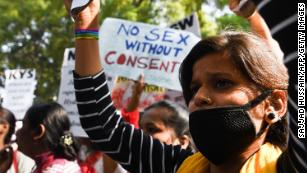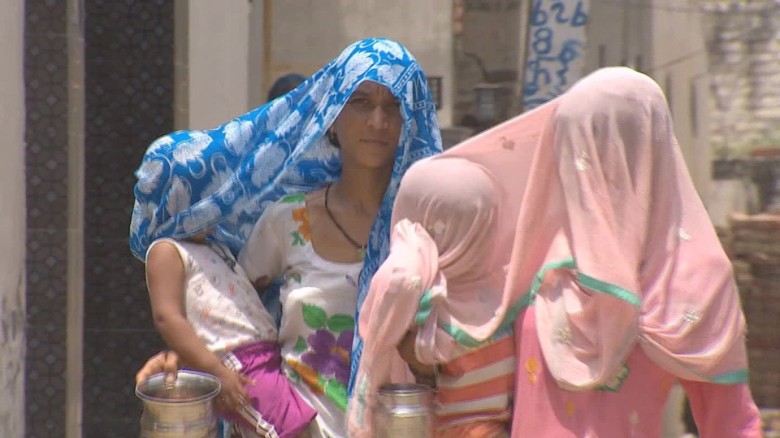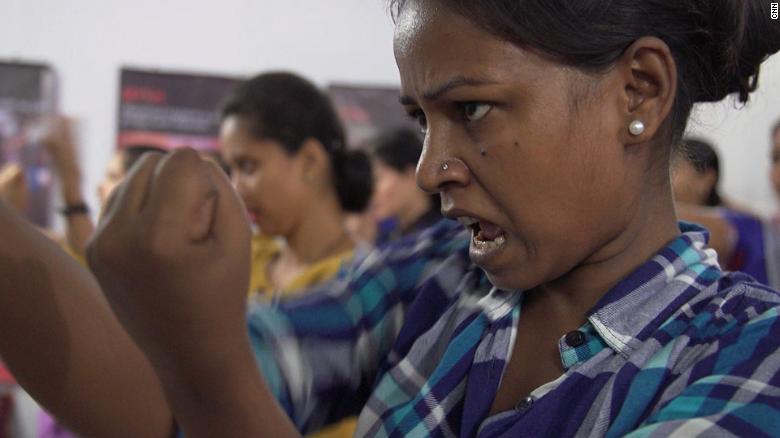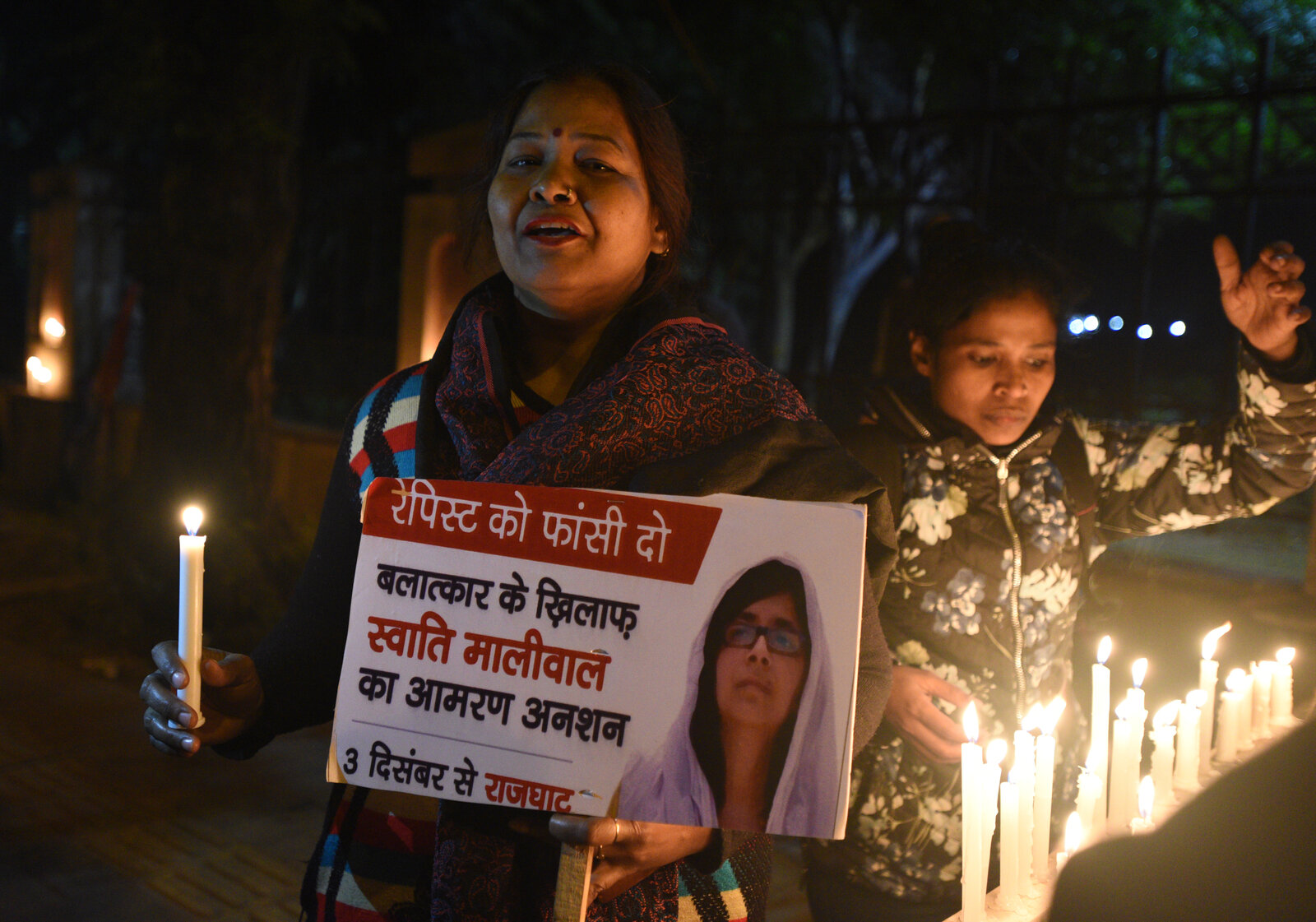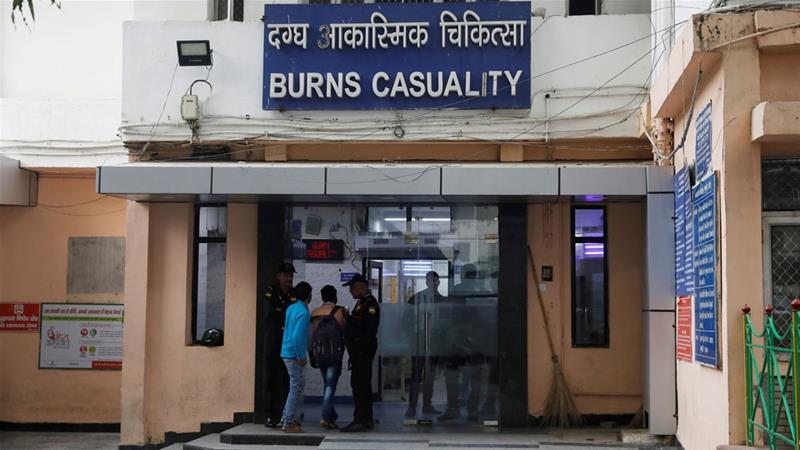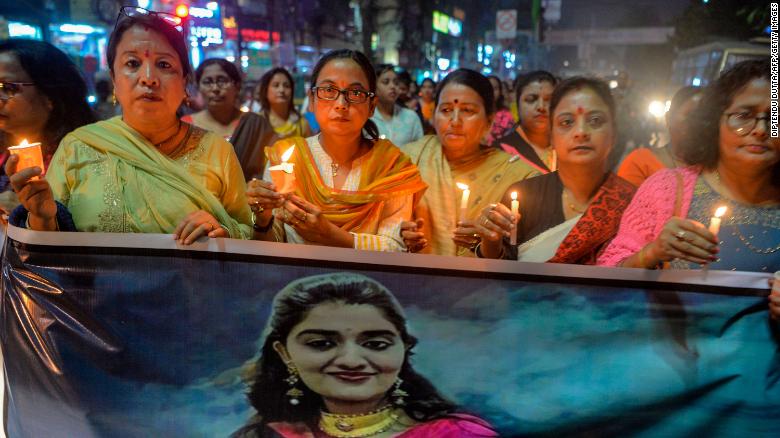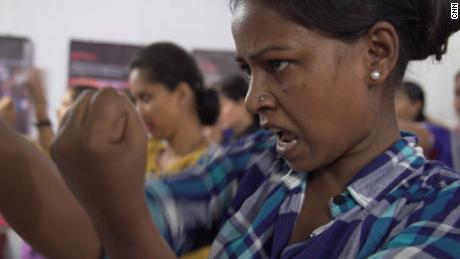https://www.aljazeera.com/news/2019...dies-hospital-set-ablaze-191207041031010.html
India rape victim dies in hospital after being set ablaze
The woman was on her way to attend a court hearing when she was doused with kerosene and set on fire on Thursday.
7 Dec 2019
The burns casualty ward of a hospital in New Delhi where the 23-year-old rape victim was being treated [Adnan Abidi/Reuters]
MORE ON ASIA
A
23-year-old rape victim died in a hospital in
India's capital two days after she was set on fire by a gang of men, including her alleged rapist, the doctor treating her said.
The woman was on her way to board a train in Unnao district of northern Uttar Pradesh state to attend a court hearing when she was doused with kerosene and set on fire on Thursday, according to the police.
The attack, the
second significant case of violence against women in the past two weeks, has sparked public outrage in India.
More:
The woman died on Friday after suffering a cardiac arrest, Dr Shalabh Kumar, the head of burns and plastic department at New Delhi's Safdarjung Hospital told Reuters News Agency.
"She was having 95 percent burns," he said, adding that the woman's windpipe was burned and "toxic and hot fumes" had filled her lungs.
The woman had filed a complaint with Unnao police in March, alleging that she had been raped at gunpoint on December 12, 2018, police documents showed.
Having been subsequently jailed, the alleged rapist was released last week after securing bail, police officer SK Bhagat said in Lucknow.
Uttar Pradesh is India's most populous state and has become notorious for its poor record regarding crimes against women, with more than 4,200 cases of rape reported there in 2017 - the highest in the country.
Priya Hongorani: Indian gang-rape suspects will get fair trial (3:58)
This case is one of the latest high-profile sexual abuses reported in recent days.
On Friday,
Indian police shot and killed four men who were suspected of
raping and killing a 27-year-old veterinarian near Hyderabad city, an action applauded by her family and many citizens outraged over sexual violence against women.
But many were also concerned that police had overreached in shooting the alleged suspects without any trial.
More than 33,000 women were raped - an average of some 90 rapes reported each day - in India in 2017, according to the figures released by the National Crime Records Bureau (NCRB).
But the real figure is believed to be far higher as many women in India do not report cases to police due to fear or shame.
The NCRB data also shows that more than 90 percent of cases of crimes against women were pending in courts across the country.
Earlier this year, the BJP government in Uttar Pradesh was
widely criticised by the opposition parties who accused it of protecting a party legislator charged with raping a 19-year-old woman in the same Unnao town.
https://www.cnn.com/2019/12/03/asia/india-hyderabad-rape-intl-hnk/index.html
New Delhi (CNN)They
found her charred body near a highway underpass, early Wednesday morning, on the outskirts of one of India's biggest cities.
The victim, an unnamed 27-year-old veterinarian, was about to hop on her scooter Tuesday evening, when she noticed she had a flat tire.
Two men are alleged to have approached her to offer help, but they were not good Samaritans. According to police, the two men were members of a gang of four who had conspired to sexually assault her. One of the men had let the air out of the tire deliberately, police said.
Three of the gang are alleged to have overpowered the victim and dragged her to an enclosed area a few feet away. They covered her mouth with their hands to ensure her silence.
The four men are then alleged to have taken turns raping the victim, according to R. Venkatesh, a police inspector in the southern city of Hyderabad.
Later they strangled her, before driving her lifeless body nearly 12 miles (20 kilometers) away and dumping her body under a highway overpass. In an effort to conceal their crime, they poured fuel on her body and set it alight.
The four men have been arrested for her rape and murder, according to police.
Protesters took to the streets of New Delhi on December 1, 2019 to demand justice for the Hyderabad rape and murder victim.
As news spread of the monstrous crime, protests erupted in Hyderabad and later expanded to cities including Bengaluru and India's capital, New Delhi.
Some people in the angry crowds demanded the death penalty for the suspects and called for justice after yet another rape and murder of a woman in India.
According to India's National Crime Records Bureau (NCRB), around 100 sexual assaults are reported to police in India every day. In 2017, more than 32,000 rapes were reported across the country -- but experts say that the real number is likely much higher, owing to the shame attached to sexual assault and the social barriers faced by victims.
An endemic problem
The outrage in Hyderabad comes just two weeks before India marks the anniversary of a disturbingly similar crime. The
gang rape of a 23-year-old physiotherapy student in New Delhi on December 16, 2012, brought the issue of
women's safety in India to the world's attention.
In September 2013, four men were sentenced to death in that case. The
decision was upheld in 2017 and the four men remain on death row.
Another perpetrator was underage at the time and received a lesser sentence, while a sixth attacker died in prison.
The case led to protests across India and intense media coverage around the world, shining a light on India's pervasive problem of sexual violence against women.
But nearly seven years on, campaigners say that not much has changed for women in the country. The Hyderabad murder was just one of many vicious and violent crimes committed against women and children in the country during the past seven days alone.
In perhaps the most shocking incident, a 6-year-old girl was raped and strangled to death with her own belt on Saturday in a village near Jaipur, in the northern state of Rajasthan, more than 870 miles (1,400 kilometers) north of Hyderabad.
A drunk 38-year-old man is alleged to have lured the girl out of school by offering her candy, and killed her because she knew him and feared she could identify him to authorities, according to Vipin Sharma, a senior official with Rajasthan police.
The suspect was arrested by police on suspicion of rape and murder.
Around 620 miles (1,000 kilometers) south of Hyderabad, a 40-year old woman was attacked with a gardening tool in the city of Perumbavoor in Kerala, early Wednesday morning. She was raped, and later died of her injuries, said K. Bijumon, a senior official with Perumbavoor police.
Perumbavoor police have arrested a 28-year-old man in connection with the crime and he is currently in custody.
Supporters of India's ruling Bharatiya Janata Party (BJP) hold a vigil for the Hyderabad rape and murder victim in Siliguri, West Bengal on November 30, 2019.
A day earlier, in the eastern state of Jharkhand, a 25-year-old woman was gang raped by a group of 12 men, said Rishav Jha, a senior police officer with Ranchi police.
The victim was sitting with a male friend when the gang surrounded them. They assaulted her friend and then dragged the woman to a nearby enclosure, where they took turns raping her.
All 12 suspects have been arrested and are currently in police custody.
Rape culture
The
deep-rooted problem of sexual assault in India has in the past been seen by authorities as more of a social and cultural issue rather than a concern for law enforcement, according to women's rights activists.
"It is in the mind of society, and men and boys to brutalize women. They get a power kick. If law and order and enforcement is strong, then the law starts acting as a deterrent. The politicians make obnoxious statements. They help in creating the rape culture," said Ranjana Kumari, director of the Delhi-based Centre for Social Research.
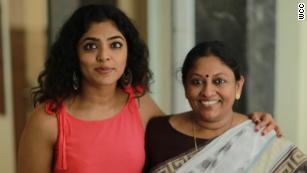
With her or with him? How the sexual attack of an Indian actor inspired a powerful feminist movement
"The law is not acting as a deterrent," added Kumari.
Lawmakers in India's Parliament have condemned the Hyderabad incident, demanding stricter laws and swifter punishment for rapists. Some even called for rapists to be publicly lynched or castrated.
In the wake of the 2012 Delhi gang rape case, lawmakers passed a series of amendments to the existing rape laws. Additional legislation was passed last year following the heavily publicized rape and murder of an eight-year-old girl. The amended law lengthened prison terms and introduced the death penalty in cases where the victim is younger than 12 years of age.
On Tuesday, a woman's rights activist went on hunger strike in Delhi to demand the death penalty for all rapists, saying she would not eat until a new law was passed.
"How can we sit silently when there is no one to listen to her screams? Whoever is silent today, their conscience will have to answer to this for the rest of their lives," Swati Maliwal, chairwoman of the Delhi Commission for Women, wrote on Twitter on Monday.
India is yet to execute any convicted rapists following the introduction of the amendment.
In 2017, a total 117,451 rape cases were pending in the country, while 28,750 cases were brought to trial, according to NCRB figures.
Women's rights activist Kumari said putting more suspected rapists on the court stand was of greater concern than carrying out capital punishment.
If India were to start hanging people for rape, authorities would need to set up gallows the length and breadth of the vast nation of more than 1.3 billion people, Kumari said.
"But you are not punishing anybody. How many convictions have been reached? The truth of the matter is that nobody gets punished," she said.





